News
-
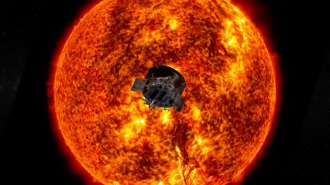 Space
SpaceNASA’s Parker probe reveals the sun’s rogue plasma waves and magnetic islands
Scientists have analyzed the Parker probe’s first data, giving a peek at what’s to come as the craft moves closer to the sun over the next few years.
-
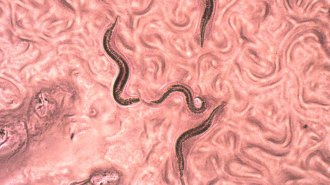 Animals
AnimalsDevil worm genes hold clues for how some animals survive extreme heat
Devil worms have many extra copies of genes tied to heat stress and cell death, which may help the critters survive deep underground, a study finds.
By Sofie Bates -
 Earth
EarthClimate-warming CO₂ emissions will hit a record high in 2019
Despite countries adopting renewable power sources and coal use falling slightly, oil and gas use are pushing global carbon dioxide emissions to record heights.
-
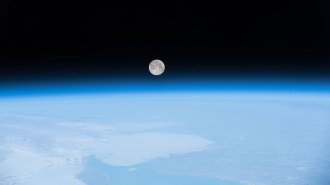 Space
SpaceHow brightly the moon glows is a mystery, but maybe not for long
The best estimates for the moon’s brightness are still somewhat unsure. A new experiment is trying to fix that.
-
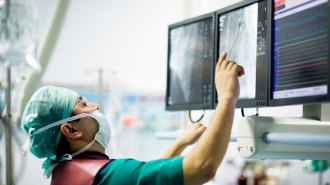 Health & Medicine
Health & MedicineMedications alone work as well as surgery for some heart disease patients
Patients with stable ischemic heart disease may be able to avoid stents or bypass surgery with medications alone.
-
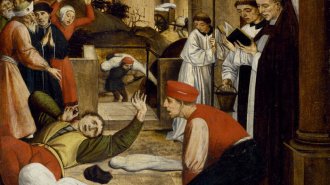 Humans
HumansAn ancient outbreak of bubonic plague may have been exaggerated
Archaeological evidence suggests that an epidemic that occurred several centuries before the Black Death didn’t radically change European history.
By Bruce Bower -
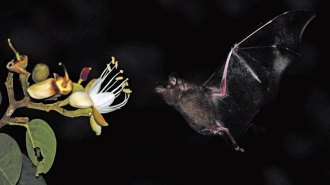 Life
LifeA tree in Brazil’s arid northeast rains nectar from its flowers
Northeast Brazil is home to a tree that entices bat pollinators by making a “sweet rain” of nectar.
By Jake Buehler -
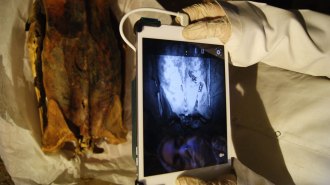 Archaeology
ArchaeologyInfrared images reveal hidden tattoos on Egyptian mummies
Infrared images show a range of markings on seven female mummies, raising questions about ancient Egyptian tattoo traditions.
By Bruce Bower -
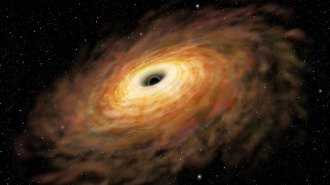 Space
SpaceA newfound black hole in the Milky Way is weirdly heavy
A dark mass about 68 times as massive as the sun is locked in orbit with a star in our galaxy. Theory says that such black holes shouldn’t get so big.
-
 Quantum Physics
Quantum PhysicsA new, theoretical type of time crystal could run without outside help
The idea tiptoes closer to the original concept of time crystals, first proposed in 2012.
-
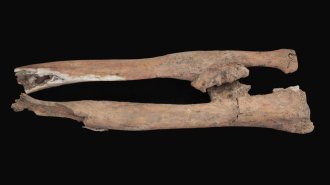 Humans
HumansArchaeologists tie ancient bones to a revolt chronicled on the Rosetta Stone
The skeleton of an ancient soldier found in the Nile Delta provides a rare glimpse into an uprising around 2,200 years ago.
By Bruce Bower -
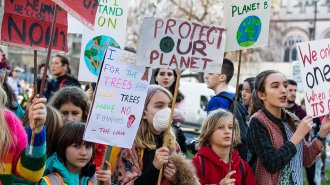 Climate
ClimateCountries urgently need to ramp up emissions cuts to meet climate targets
A new U.N. report finds that pledged emissions cuts aren’t nearly enough to limit warming to “well below” 2 degrees Celsius by 2100.